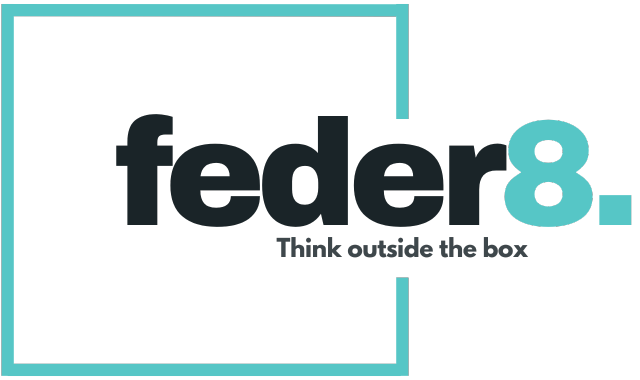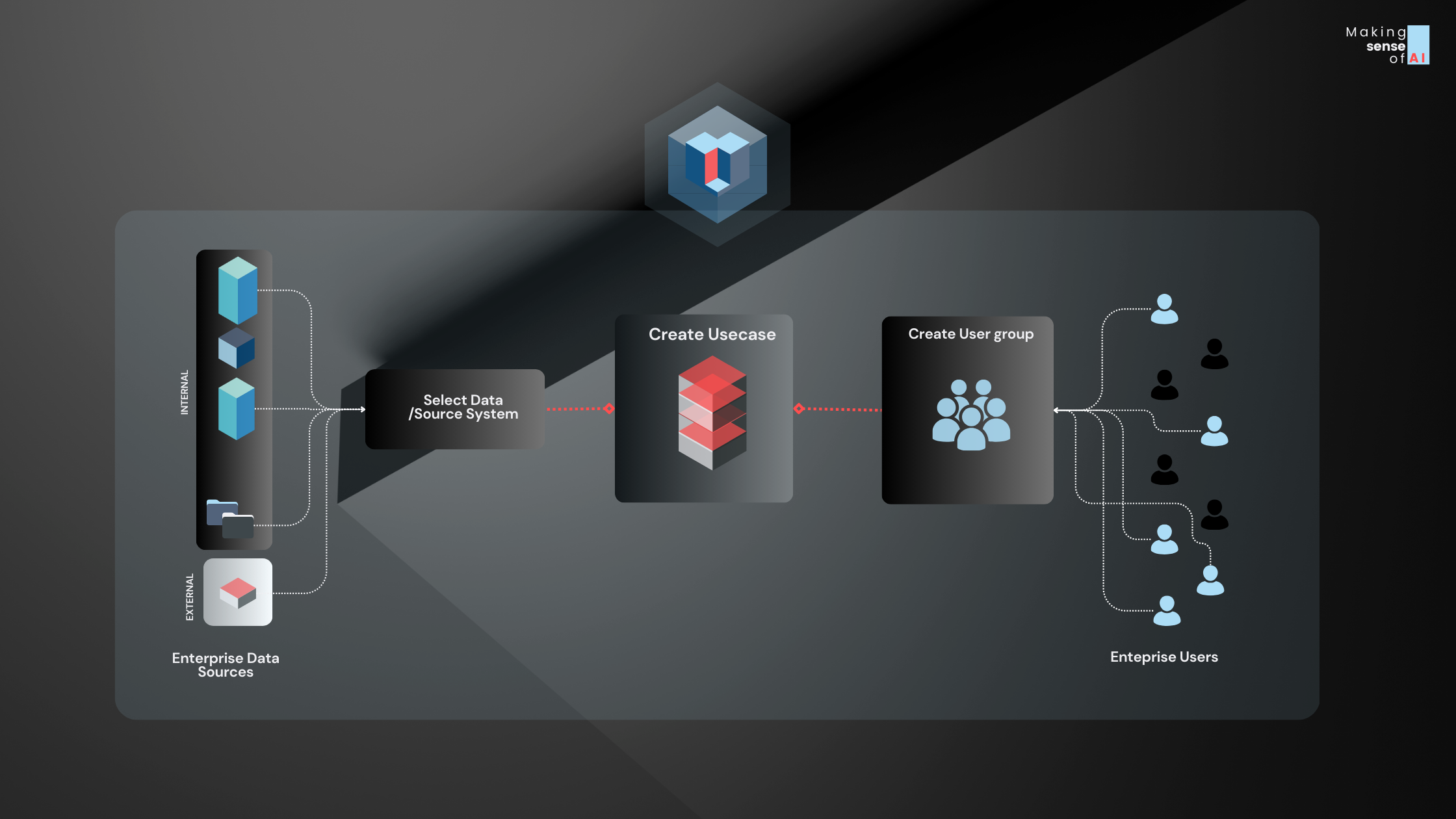

Enterprise Generative AI Framework
GEN8 with focus on Data to AI enablement, blends deep experience and expertise across data integration, governance, LLM, fine-tuning techniques, embedding, and MLOps into an open platform to assist how organisations run, grow and optimise their Generative functional AI use cases. With an enterprise Generative AI framework, innovation and adoption of Generative AI is made just easy.
Cloud Agnostic
A versatile cloud infrastructure that effortlessly integrates with your existing cloud setups, enabling the swift implementation of secure and scalable Generative AI solutions.
LLM Agnostic
A dynamic and secure LLM suite that offers flexibility in selecting the right LLM for various use cases throughout your organisation.
Enterprise Console
An integrated management dashboard for overseeing all your Generative AI use cases, controlling access, tracking statistics, managing user deployments, and monitoring performance.
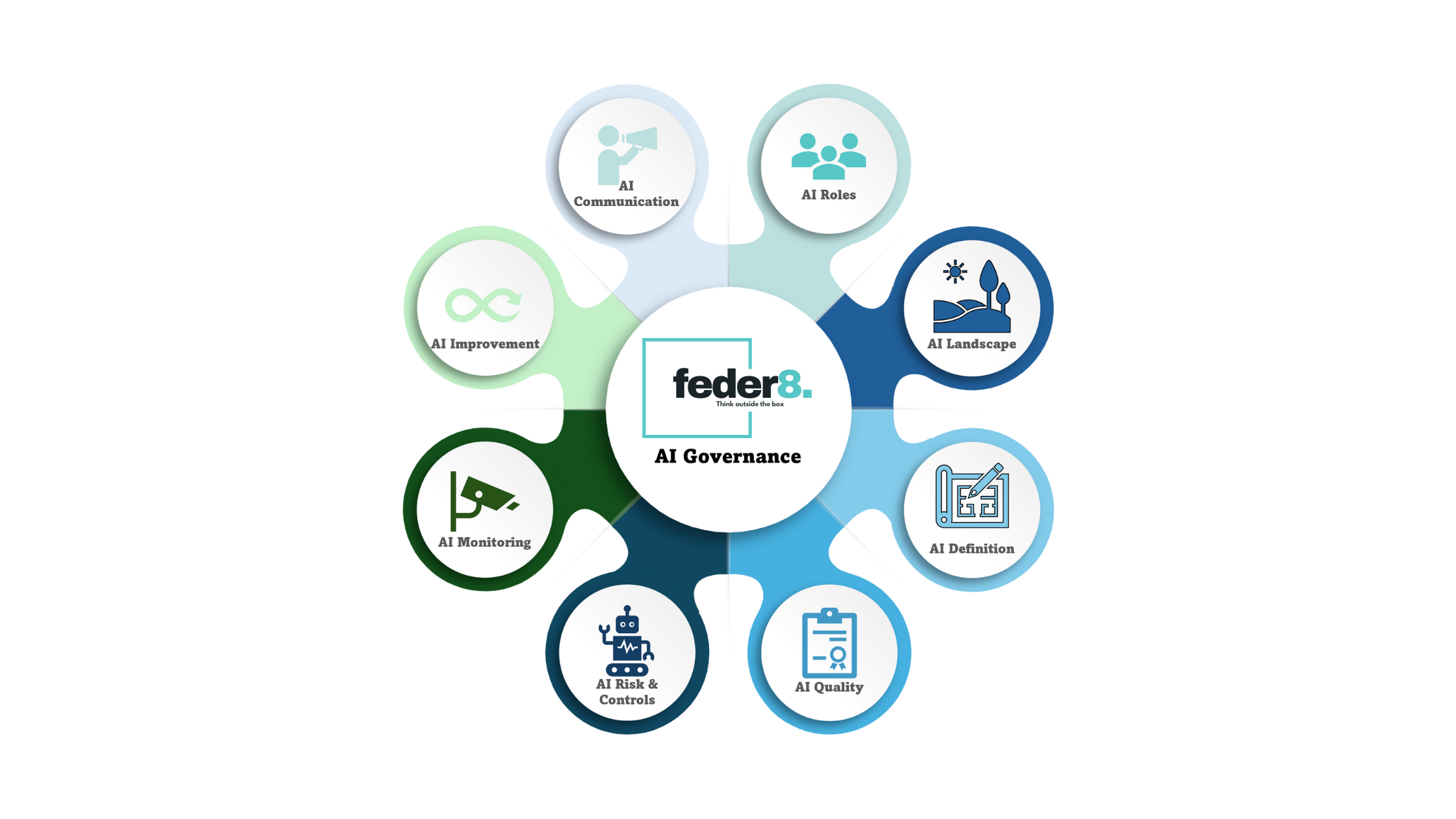
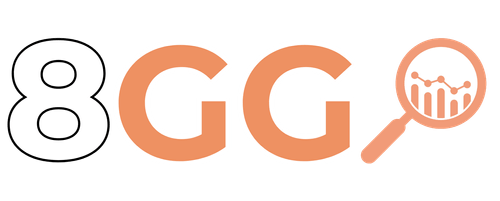
AI Governance Framework
Our approach to AI Governance, provides a comprehensive approach to managing and governing AI systems across their entire lifecycle. It ensures that AI models are developed, deployed, and monitored in alignment with ethical standards, regulatory requirements, and business objectives. The framework addresses critical areas including role assignment, risk management, data quality assurance, human oversight, and compliance with the EU AI Act.
Each gate is designed to promote transparency, accountability, and control over AI systems, helping your organisation navigate complex AI governance challenges while optimising operational efficiency. From initial risk classification and ethical impact assessments to ongoing monitoring and improvement, our framework safeguards AI usage, enabling confident decision-making and fostering trust in AI-driven outcomes.
Roles
Clearly defined roles within the AI Governance Framework ensure accountability and ownership throughout the AI lifecycle. With designated responsibilities for AI Owners, Stewards, Ethics Officers, and Risk Managers, the framework fosters a structured approach to managing AI risks, ensuring compliance, and upholding ethical standards across the organisation.
Definition
Establishing clear and consistent definitions for AI governance processes and risk classifications forms the foundation for aligning strategies and policies throughout the AI model lifecycle. This unified approach ensures that AI systems are transparently developed, ethically deployed, and effectively managed in compliance with regulatory requirements.
Improvement Planning
Continuous improvement planning within the AI Governance Framework drives the ongoing refinement of AI models and governance practices. By leveraging performance insights, feedback, and ethical evaluations, the framework ensures that AI systems remain effective, unbiased, and aligned with evolving business objectives and regulatory standards.
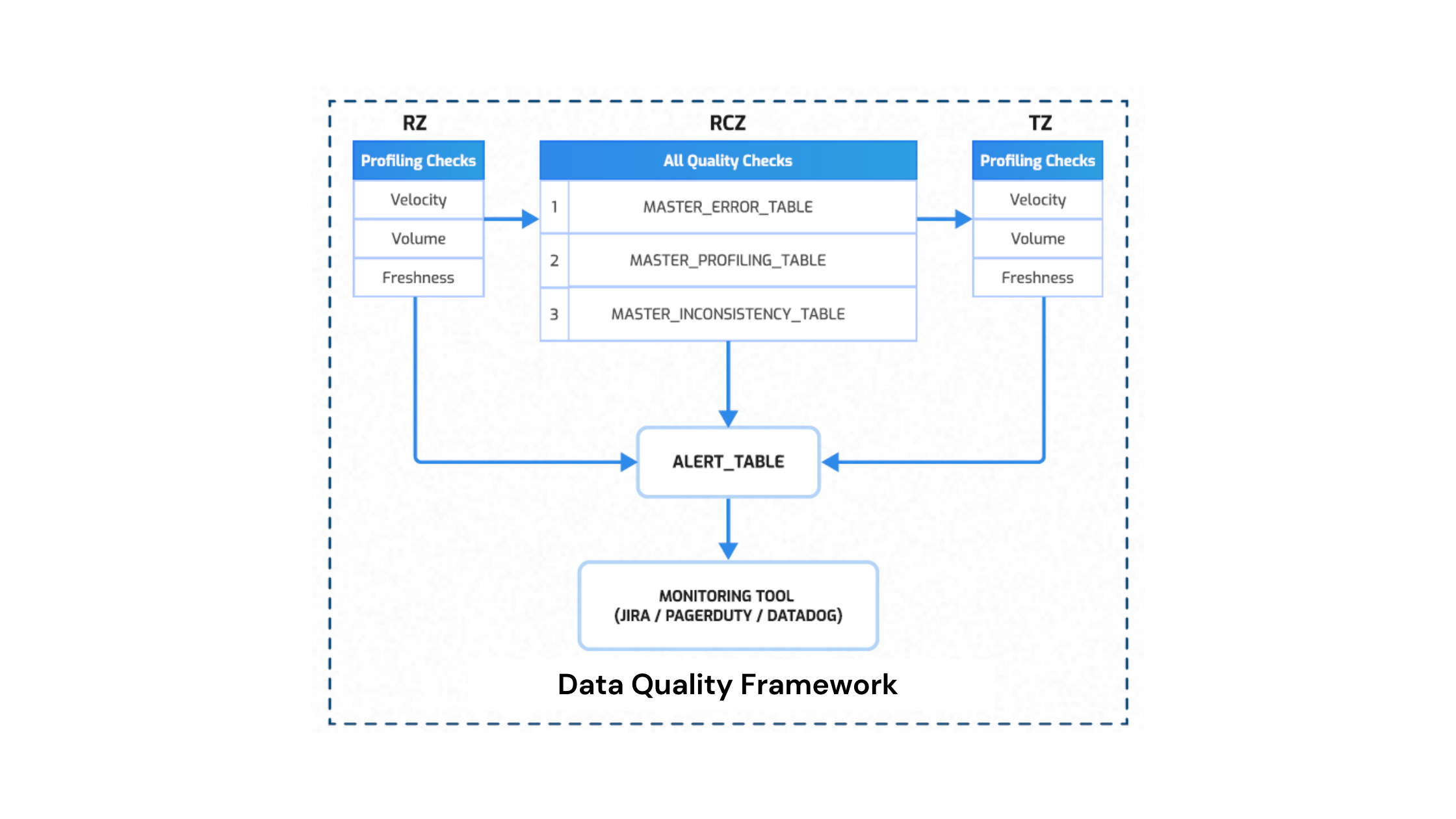

Data Quality Framework(DQF)
Data Processing Framework
Our Data Quality Framework (DQF) improves the integrity of data within your Data Lake by proactively identifying issues and discrepancies in data pipelines. It implements comprehensive checks on data velocity, volume, and freshness across multiple zones. The results are consolidated into an alert table, acting as a central hub for tracking data quality. Automatically generated Jira tickets streamline issue resolution and task management. This framework ensures continuous monitoring and timely notifications to relevant stakeholders, fostering efficient data quality management.
Data Profiling
Categorical data profiling involves analysing and summarising non-numeric data, including frequency analysis, visualisation, and identifying associations
Numerical Data Profiling
Numerical data profiling is the process of analysing and summarising quantitative data, including statistical measures, distributions, outliers, and patterns, to gain insights and understand the characteristics of the data.
Data Outliers Detection
The calculation of data outliers involves analysing column-level data for each batch. Values falling outside a predefined range can distort analysis results. Hence, values significantly lower than the minimum threshold or higher than the maximum threshold are considered data outliers.


From Data to Impact
Inteligo offers a streamlined, serverless, and cloud-agnostic framework designed to simplify the complexities of modern data landscapes. With a unified solution for data ingestion, storage, and processing, it provides unparalleled flexibility to fit your organisation's needs.Powered by low-code technology and machine learning, our platform ensures faster, more efficient workflows that boost productivity and accelerate results.
All-in-One Platfrom
Our platform provides a holistic approach to data management, seamlessly integrating the collection, transformation, analysis.
Cloud-Agnostic
With cloud agnistic features, out platform ensnure compability across various cloud providers, giving users the flexibilities to utilise.
Plug & Play Framework
Experience unparalleled agility with our intutive plug-and-play framework. Designed for both no-code or low-code environments.
